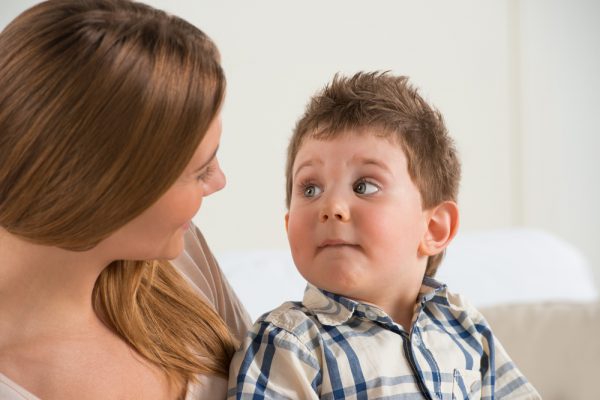We know that we should speak to our kids and model good language. It is how they learn vocabulary and communicate. When toddlers don’t feel heard, they might turn their frustrations into a tantrum. Oh, the joys!
As parents and carers, we listen and talk to our kids. When can we deliberately plan to model good listening and speaking in everyday life? I try to fit all learning into everyday situations. Incidental learning without making it a big deal, is a subtle way of linking ideas as kids grow.
So, what are some ideas when interacting with kids in everyday situations?
Go for a drive
As tempting and appropriate it may be to place an iPad in front of your child while on the road, it’s always best to have a balance. Speaking with your child about where you’re going, who they will see or playing a ‘I Spy’ or ‘Spotto’ game as a family group, are just a few ideas about what to do in a car. Have you considered playing an audiobook for the whole family to listen to and discuss. Talk about what might happen next, who’s in the story, if they like the things the characters are doing, if the story reminds them of any other story or character.. the list goes on. Read a joke book as a family and have fun.
At the Supermarket
Place your child in the trolley seat and involve them in your grocery choices. Point out the sections in the supermarket and ask them if they think you need to buy say, bananas. Eg:“Do we have any fruit left at home?’
Playgroup
Get involved with a playgroup that is run by like-minded parents. Ask around and attend a few different sessions at different venues, to gauge how they feel. Playgroup can vary. Giving your child the opportunity to play with other children, develops listening and speaking skills. At the same time, you can mingle with other parents and model social communication.
While pushing the pram
Try to avoid holding your phone in your hands as you walk your child in a pram. Give them your undivided attention and see the magic happen. Talk about the nature around them, point out pretty gardens, street signs, dogs on leads, the weather (if it’s windy etc), where you are going, what you think you will see. It’s about connecting with your child and enjoying the time when they are little. Keep headphones out of your ears as you model listening to them.

Walking the dog
You might take the opportunity to walk your dog while your baby is in a chest pouch or pram. Even if your baby is very little, even hearing your voice, the mood, different words, or emphasis you place on different words, is all about developing your child’s vocabulary.
Go to the movies
Make a big deal about seeing a movie at the cinema. It’s a time to munch on popcorn or whatever, while enjoying a ‘visual text.’ Talk to your child on the way to the venue, about what they think the movie will be about.
Eating out
Eating at a restaurant is a way to develop social skills and the language associated with positive and respectful social behaviours. While it’s a parent’s perogative to have devices at the table, I am a fan of leaving devices at home, during all meals because it’s a way to bond and communicate about what’s happening in everybody’s world at that time. eating together is a special time.
A birthday party
There’s a way to behave at a party. Model healthy social skills to your child by having them next to you while you engage with others at the party. Let them see how you engage significant others and look people in the eyes while saying ‘Happy Birthday’ etc. Shaking hands is another way of developing social skills while engaging in a social conversation.
Take a train trip
Whether it’s travelling to the city or out to the country, a train trip is a great way to give your child lots of attention and time. Position them near the windows and encourage them to look out and tell you what they see and hear.
We can help them up to be effective communicators. Most of us would say that respectful exchanges with others is an important life skill. When we actively listen to our kids, they feel valued and heard.
You may also like to read:
Parenting – starts with communication
Communicating with confidence is the priority!









